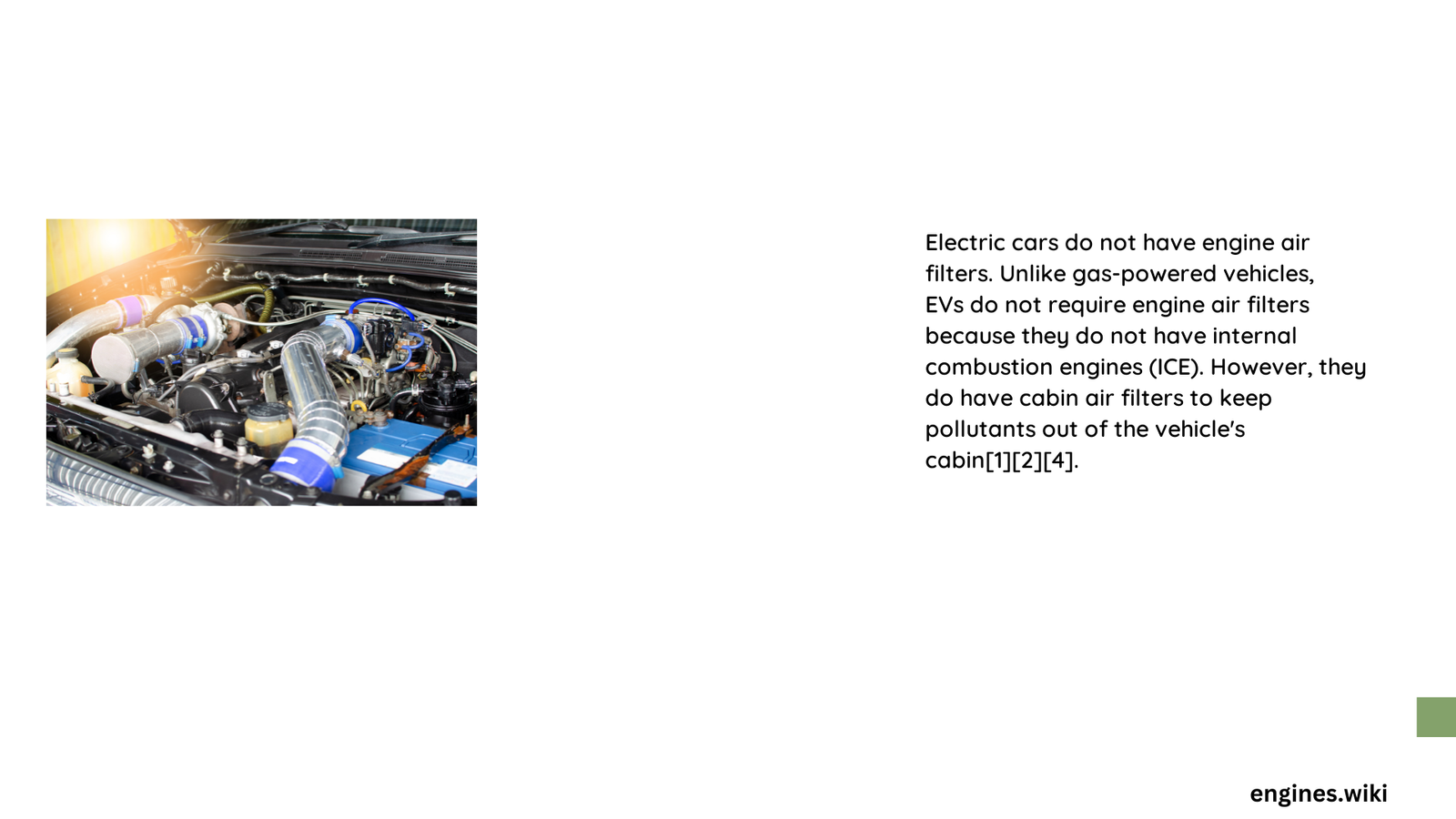Electric vehicles represent a revolutionary approach to transportation, challenging traditional automotive design principles. Unlike conventional internal combustion engine vehicles, electric cars fundamentally differ in their mechanical composition, particularly regarding air filtration systems. While they do not have engine air filters, electric vehicles employ sophisticated cabin air filtration technologies that ensure clean, high-quality air for passengers and protect critical electrical components.
Do Electric Cars Require Traditional Engine Air Filters?
Why Electric Vehicles Skip Engine Air Filters
Electric vehicles do not have engine air filters because they lack an internal combustion engine (ICE). The fundamental difference lies in their propulsion mechanism:
- No Combustion Process: Electric motors don’t burn fuel
- No Air Intake Requirement: No need for air mixture in engine operation
- Different Cooling Mechanism: Electric motors use alternative cooling systems
What Filtration Systems Do Electric Cars Use?
Cabin Air Filtration
Electric vehicles focus on cabin air quality through advanced filtration technologies:
| Filter Type | Particle Size Captured | Effectiveness |
|---|---|---|
| Standard Cabin Filter | 10 microns | Good |
| HEPA Cabin Filter | 0.3 microns | Excellent |
Battery Cooling System Filters
While not engine air filters, EVs use specialized filters to:
– Protect battery cooling channels
– Prevent contaminant buildup
– Maintain optimal thermal management
How Do Electric Vehicle Air Filters Work?
Electric vehicle air filtration systems primarily protect:
1. Passenger cabin environment
2. Battery cooling infrastructure
3. Electrical component integrity
Maintenance Considerations for EV Air Filters
Replacement Intervals
- Cabin air filters: Every 12-18 months
- Battery system filters: Annual inspection recommended
Unique EV Air Filtration Innovations
Some manufacturers like Tesla have introduced advanced features:
– “Bioweapon Defense Mode”
– Integrated air quality sensors
– Multi-stage filtration systems
Key Takeaways

- Electric cars do not have traditional engine air filters
- Cabin air filters are the primary filtration system
- Advanced technologies protect vehicle components
- Regular maintenance ensures optimal performance
Expert Insights
Automotive engineers emphasize that electric vehicles represent a paradigm shift in transportation design. The absence of engine air filters doesn’t compromise vehicle performance but instead showcases the streamlined nature of electric propulsion systems.
Practical Recommendations
- Regular cabin filter replacement
- Professional system inspections
- Monitor air quality indicators
- Understand your specific EV model’s filtration system
Technical Nuance
The lack of engine air filters in electric vehicles highlights their fundamental design difference from internal combustion engines. This distinction represents not a limitation but an engineering optimization.
Conclusion
Electric vehicles demonstrate that innovative design can challenge traditional automotive assumptions. While they don’t have engine air filters, their filtration systems are sophisticated, targeted, and highly effective.
References:
- https://www.youtube.com/watch?v=9-nZhL7jncE
- https://napanexdrive.ca/en/resources/how-to-maintain-your-ev-s-filters
- https://pureflowair.com/blogs/post/cabin-air-filters-for-evs-are-they-different
